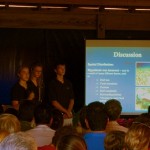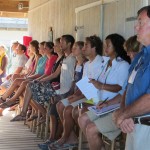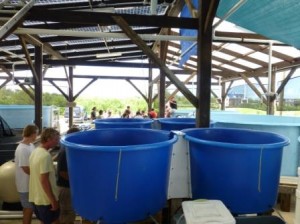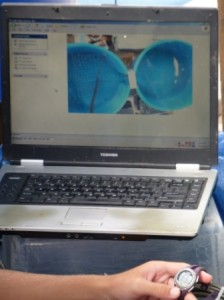This November, CEI was flooded with over 100 guests as The Island School hosted Parents’ Weekend for all 45 students. The week was full of tours around campus, a student art show, parent-teacher meetings, and plenty of free time for students to show their families the island of Eleuthera. One of the many highlights of the week came when students could share their semester research projects with their families and other members of the Foundation.
For the research presentations during Parents’ Weekend, each group had 10 minutes to give an introduction to their project, explain their hypotheses, describe the methodology and results, and share the conclusions they came to from their data. In addition, each group faced a firing squad of questions from curious parents about their topics. The parents learned a lot about a predator’s effect on the growth rate of young juvenile lemon sharks, how climate change might affect the metabolic rates of fish in mangrove creeks, and the invasion of the voracious lionfish. Continue reading



